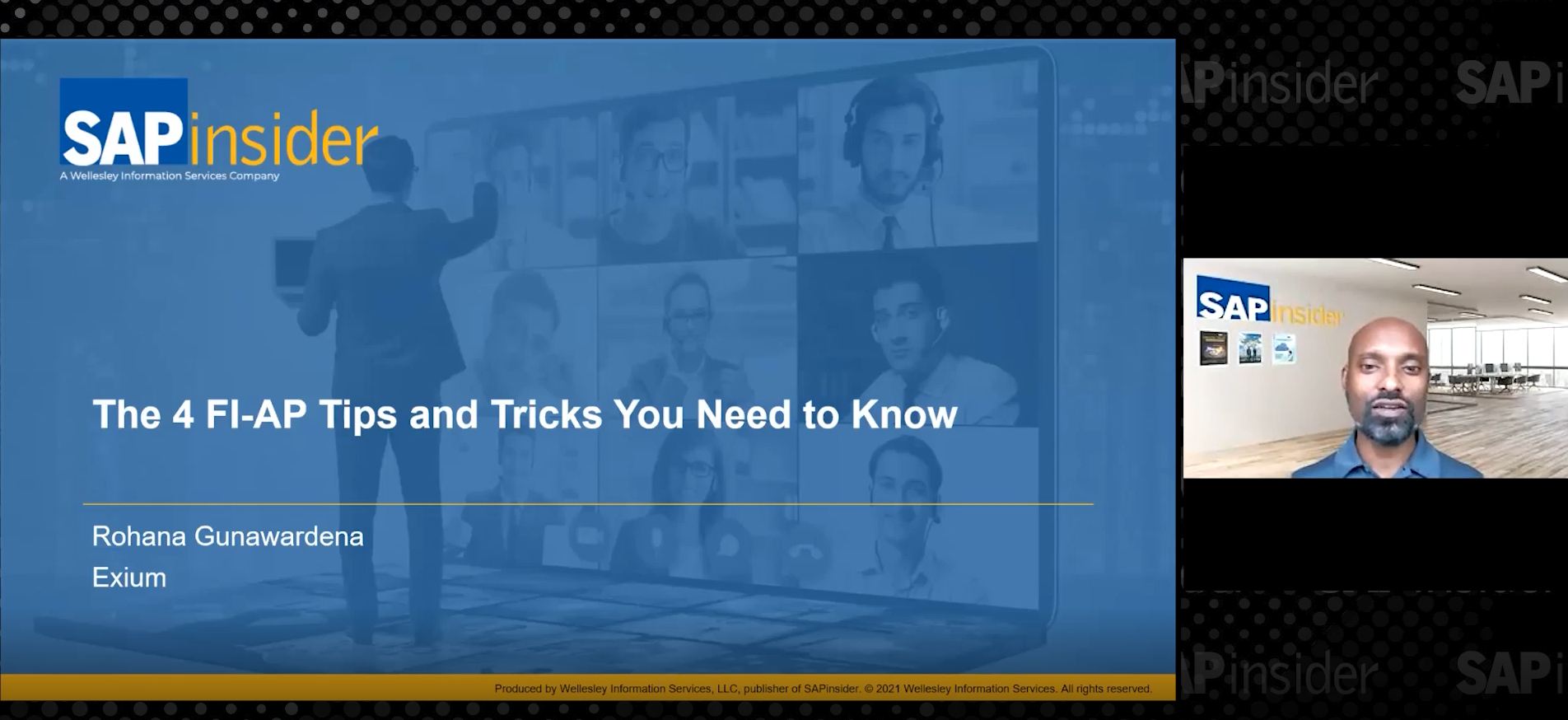An Overview of Global PayEX B2B Payments Offerings for SAP Finance Teams
Meet the Authors
Key Takeaways
⇨ Global PayEX is a SaaS company that offers B2B payments solutions that integrates within ERPs like SAP.
⇨ Its platform emphasizes the facilitation of collaboration between buyers and sellers.
⇨ Global PayEX operates on a modern tech stack, offering a range of functional features, with implementation timelines reportedly around 2-3 months.
Global PayEX, a Software-as-a-Service (SaaS) company, operates within the B2B payments domain and integrates with leading ERPs like SAP, Oracle, and Microsoft. With backing from JPMorgan Chase, it seeks to address specific challenges in this area, including invoice processing inefficiencies and reduced sales productivity, inefficient reconciliation processes, and payment delays due to limited visibility.
Facilitating Collaboration: The Global PayEX Approach
Global PayEX’s platform emphasizes the facilitation of collaboration between buyers and sellers. Its primary features include streamlined B2B payments, collections/payments acceleration, reconciliation, and Straight Through Processing (STP). These features aim to optimize working capital efficiency, a major challenge for the SAPinsider finance community.
Banking and Corporate Associations: Global PayEX has established partnerships with financial institutions including JPMorgan Chase, BNP Paribas, Deutsche Bank, Standard Chartered, and Citi. On the corporate side, its clientele list comprises companies such as 3M, Bridgestone, Stanley Black & Decker, GlaxoSmithKline, and others.
Strategic Alliances: The company has a partnership agreement with FIS, a global acquiring entity, focusing on electronic invoice presentment and payment (EIPP) through a white-label platform.
Platform capabilities and features:
- Cloud-based Ecosystem: Global PayEX operates a cloud infrastructure that enables buyer-seller collaboration, transactions, and reconciliation.
- Automation via Data-Driven Solutions: The platform leverages data-driven SaaS and AI/ML technologies to automate financial processes.
- Decision Support for CFOs: The platform provides data-driven insights and financing options.
Global PayEX’s platform encompasses a range of functions, such as:
- Invoice presentment
- Dunning and disputes management
- Deferment requests processing
- Approvals, credit, and debit notes management
- Cash discounts, penal interest, and diverse payment methods tracking
Value Proposition and Benefits
- For corporates: Features like invoice delivery, reminders, reconciliation, and dunning mechanisms are present to support corporate financial processes.
- For buyers: The platform offers invoice viewing, multiple payment methods, including partial payments, and tracks discounts and overdue payments.
- Engagement with stakeholders: The platform engages with various stakeholders, including dealers, suppliers, banks, and different types of buyers, aiming to simplify B2B payments.
Performance Metrics provided by Global PayEx:
- Up to 98% in end-to-end automated reconciliation.
- Reduction in Days Sales Outstanding (DSO) by up to 7 days.
- A 95% STR and STP automation rate.
Additional data from Global PayEX suggests that Bridgestone decreased its days sales outstanding by six days, affecting cash flow over an eight-month period. Another client reportedly improved its cash conversion cycle, resulting in working capital changes.
SAP Finance Team Considerations for Global PayEX Offering
Global PayEX operates on a modern tech stack. It offers a range of functional features, with implementation timelines reportedly around 2-3 months. Another feature is the two-way ERP integration capability, which is compatible with leading accounting systems such as SAP. However, it is important to remember that each business has unique needs and compliance requirements. Therefore, businesses should conduct comprehensive research and analysis before choosing a payment processing solution to ensure that it meets business needs and goals.
What does this mean for SAPinsiders?
Emphasize hyper-automation via A.I. in reconciliation and payments. SAP finance teams should identify bottlenecks in their current reconciliation and payment processes and prioritize these areas for A.I.-driven automation. Organizations can streamline these processes by leveraging AI-powered tools and solutions and achieve similar high automation levels. This approach can significantly reduce manual workload, decrease errors, and improve efficiency. As indicated by Global PayEX’s achievement of up to 98% end-to-end automated reconciliation and 95% STR and STP automation, the potential for A.I. in automating complex financial processes is considerable.
Transition to cloud-based solutions for flexibility and scalability. Cloud-native solutions offer the flexibility to adapt to varying workloads, easy access from any location, and scalability to cater to growing business needs. They can significantly reduce the reliance on manual processes by offering automated solutions and can easily be updated without substantial changes to the underlying infrastructure.
Implement A.I. and data-driven framework for enhanced decision-making. Legacy and manual processes often lack the analytical capabilities of modern AI-driven tools. Teams should identify critical areas where data analytics and predictive insights can benefit decision-making. By incorporating A.I.-powered tools into these areas, they can transform raw data into actionable insights, reducing guesswork and enhancing the strategic planning process.









